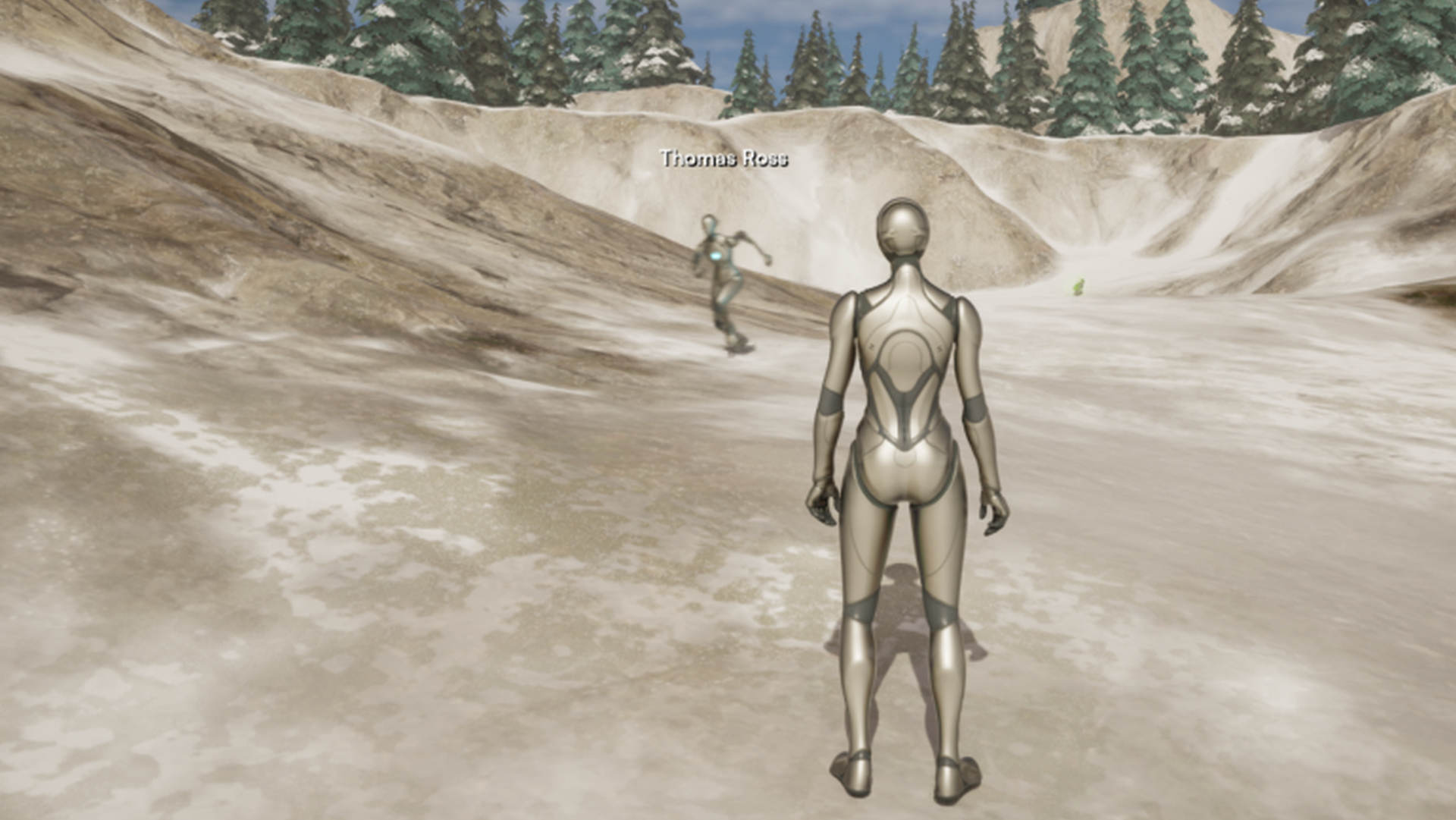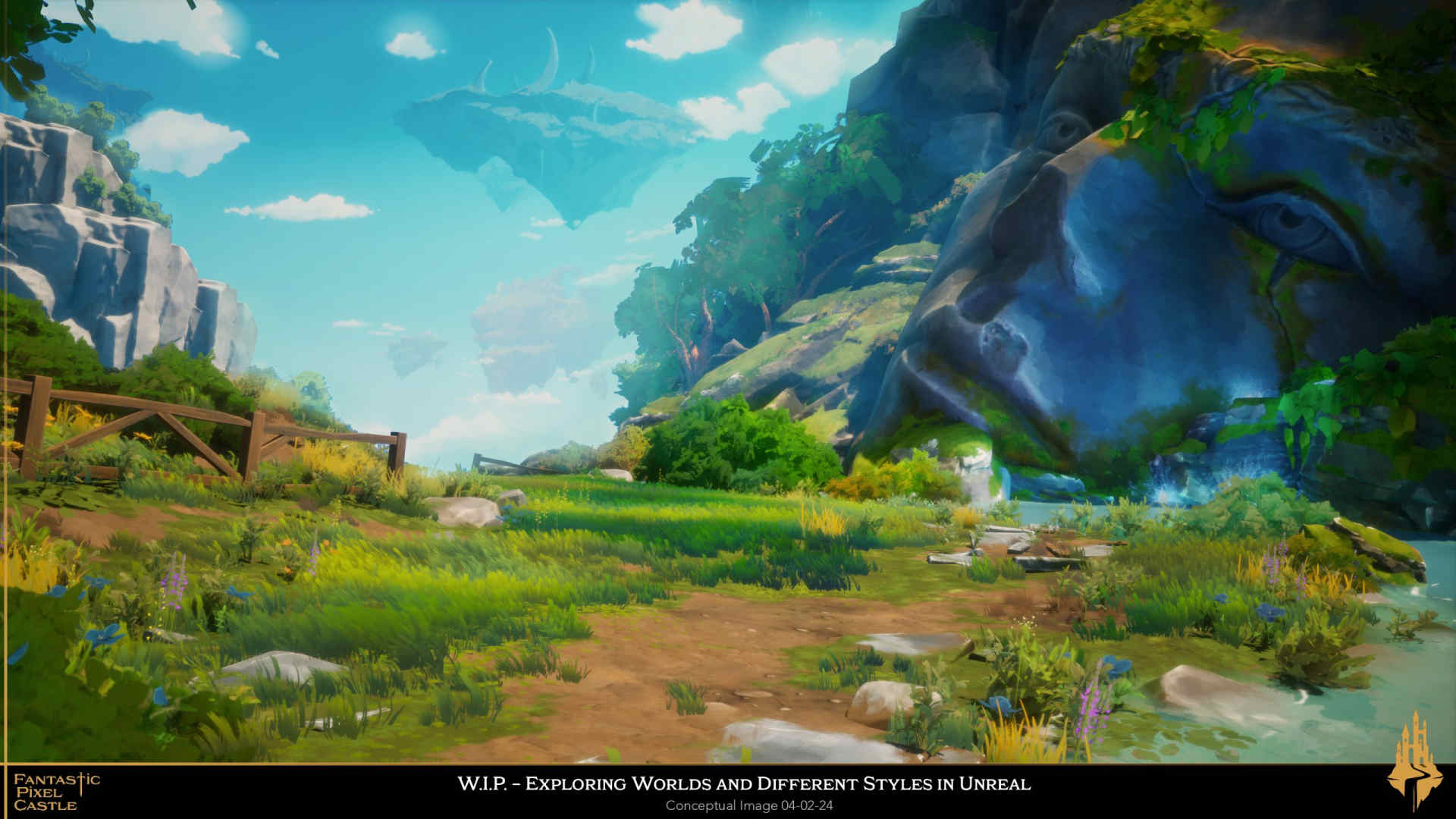
Ghost, the new MMO from a studio led by former WoW and Riot MMO lead Greg Street, just shared its first real development update, offering a peek at a game so early in development that I'm hoping it inspires a new wave of transparency across the industry.
Earlier this week, Greg Street, game director on Project Ghost and studio head at developer Fantastic Pixel Castle, announced that his team was about to show off the game for the first time, but warned MMO fans that at this stage, it would "look like ass." In the newly-released Milestone 1 Updates blog post, the team lived up to those claims. Ghost is currently in a state that's barely above the 'grey box' stage of development, and community manager Faye is quick to point out that "everything" on show in the blog post - from the character to the environments to the UI - is placeholder content taken from Unreal Engine marketplace assets.
That's because Ghost is so new that the art style is still being decided on, and that novelty extends to game mechanics as well. In an explanation of the Milestone 1 goals, Faye says that "we wanted to have the foundation of MMO combat in our game, including little details like 'Respawn when dead' and 'a very basic healing system'." Those combat foundations also extend to the existence of a simple XP system, enemies to fight, and the ability to move around on the map.
There's also a closer look at the Planescape-inspired Blue Shards and Red Shards, which split Ghost into public and private realms. Devs are able to move from the public Red zones into private Blue zones, and while the latter is currently pretty sparse and requires a lot of work to make generation "fast, easy, and efficient," at least the bones of the system are working.

As if those bare-bones visuals weren't enough, the team also discussed the fact that offering an actual look at Ghost is pretty difficult, because the art and worldbuilding teams are still trying to establish what the game actually looks like. According to Faye, the creative team is "deep in the throes of inventing the universe of Ghost." We're not getting any real sense of the story for a long while yet, but it's yet more evidence of just how early days this thing is.
But it goes deeper even than that. This is a team that's being so transparent that at one point, one of the production team mentions switching up workflows (known as 'sprints') because it made it easier for devs to communicate around the exploratory nature of the game's current state. A designer mentions the extent of the physics bugs that they had to deal with. Some of this stuff feels like I'm reading notes from an all-hands meeting. It's extremely candid, in a manner in which I simply don't recognise from swathes of the industry.
I'm struck by the impression that this kind of transparency should be the norm, not the exception. Concept art is one thing, but this blog goes way deeper than that. We're talking an entire game made out of Unreal placeholders, in an industry where it's rare to see grey box work until after a game has been finished (remember how uncommon The Last of Us 2 Remastered's Lost Levels felt?). We're being shown a game that's still working out what its story and art style might begin to look like, when full-fledged cinematics exploring the deep lore of a world is a far more common way of revealing a game. Traditionally, you might learn about a finalized system or interesting mechanic, but this studio is explaining how it's building ideas as relatively simple as respawn, healing, and XP systems.
Sign up to the GamesRadar+ Newsletter
Weekly digests, tales from the communities you love, and more
Realistically, we're a long way from Ghost, but that's what makes this post so interesting. Just a couple of weeks ago, the League of Legends MMO announced a reset that would be followed by the developers going dark for several years. Given that Street - who led development on that project - left Riot to start Fantastic Pixel Castle, the candour with which his team is approaching development feels particularly notable. There are, of course, advantages to being an independent start-up IP compared to carrying the weight of one of the biggest games in the world on your shoulders, so I can understand why Riot is staying quiet, but I still hope that more studios take a leave out of Ghost's book.
While we're on the subject, I'm still not feeling great about the Riot MMO.

I'm GamesRadar's news editor, working with the team to deliver breaking news from across the industry. I started my journalistic career while getting my degree in English Literature at the University of Warwick, where I also worked as Games Editor on the student newspaper, The Boar. Since then, I've run the news sections at PCGamesN and Kotaku UK, and also regularly contributed to PC Gamer. As you might be able to tell, PC is my platform of choice, so you can regularly find me playing League of Legends or Steam's latest indie hit.


